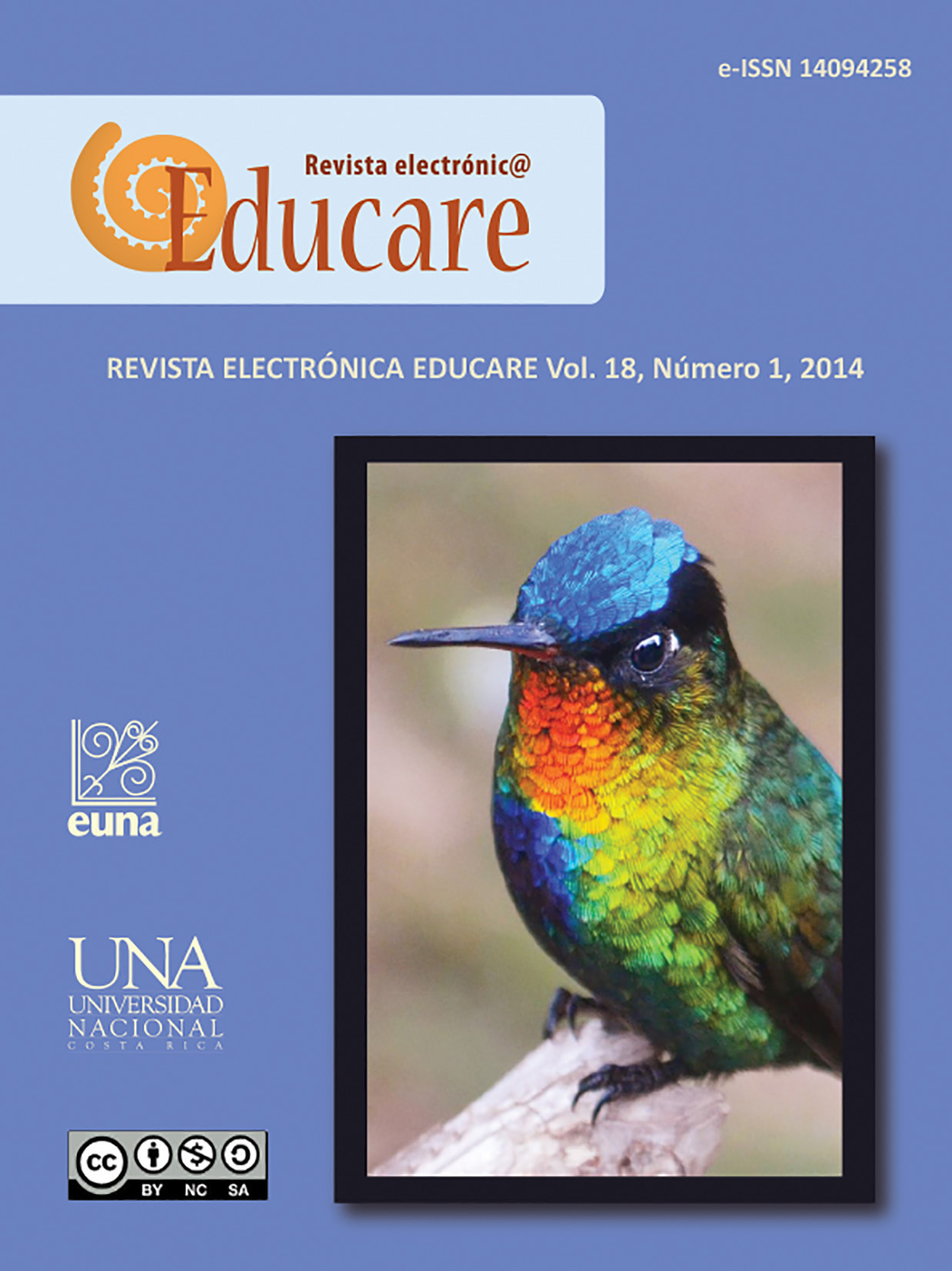The Person: Vital Core of the Pedagogic Mediation Process
DOI:
https://doi.org/10.15359/ree.18-1.14Keywords:
Pedagogic mediation, uncertainty, student-person, teacher-person, life, bond, education, parallel text.Abstract
The main purpose of this paper is to place the person as the basic element in education and, particularly, in the pedagogic mediation process. Based on her own personal and professional experiences, and inspired by writers such as Gutiérrez, Krishnamurti, Maturana, Morin and Prieto, the author uses the terms student-person and teacher-person as a way of truly re-discovering and re-learning that vital element immersed in a magical relational space, where the human being is strengthened as an individual and as part of a planetary family. Most of all, the author gives the deserved emphasis to the bond constructed from a true intertwining emotional flow. Academic insides are accompanied by experiences based on the use of the Parallel Text as a pedagogic mediation
References
Capra, F. (1998). La trama de la vida: Una nueva perspectiva de los sistemas vivos. Barcelona, España: Anagrama.
Gutiérrez, F. y Prieto, D. (2002). Mediación pedagógica. Apuntes para una educación a distancia alternativa (Reimpresión 3a ed.). Guatemala: Universidad de San Carlos de Guatemala.
Grajeda, G. (1994). Una estrategia de aprendizaje: El texto paralelo. Guatemala: Universidad Rafael Landívar.
Krishnamurti, J. (2008). Aprender es vivir: Cartas a las escuelas. Madrid: Gaia Ediciones.
Maturana, H. (1996). El sentido de lo humano (8ª ed.). Santiago: Dolme Ediciones.
Morin, E. (2001). Los siete saberes necesarios para la educación del futuro. Bogotá: Cooperativa Editorial Magisterio.
Downloads
Published
How to Cite
Issue
Section
License
1. In case the submitted paper is accepted for publication, the author(s) FREELY, COSTLESS, EXCLUSIVELY AND FOR AN INDEFINITE TERM transfer copyrights and patrimonial rights to Universidad Nacional (UNA, Costa Rica). For more details check the Originality Statement and Copyright Transfer Agreement
2. REUTILIZATION RIGHTS: UNA authorizes authors to use, for any purpose (among them selfarchiving or autoarchiving) and to publish in the Internet in any electronic site, the paper´'s final version, both approved and published (post print), as long as it is done with a non commercial purpose, does not generate derivates without previous consentment and recognizes both publisher's name and authorship.
3. The submission and possible publication of the paper in the Educare Electronic Journal is ruled by the Journal’s editorial policies, the institutional rules of Universidad Nacional and the laws of the Republic of Costa Rica. Additionally, any possible difference of opinion or future dispute shall be settled in accordance with the mechanisms of Alternative Dispute Resolution and the Costa Rican Jurisdiction.
4. In all cases, it is understood that the opinions issued are those of the authors and do not necessarily reflect the position and opinion of Educare, CIDE or Universidad Nacional, Costa Rica. It is also understood that, in the exercise of academic freedom, the authors have carried out a rogorous scientific-academic process of research, reflection and argumentation thar lays within the thematic scope of interest of the Journal.
5. The papers published by Educare Electronic Journal use a Creative Commons License:














 The articles published by Educare Electronic Journal can be shared with a Creative Commons License:
The articles published by Educare Electronic Journal can be shared with a Creative Commons License: 



